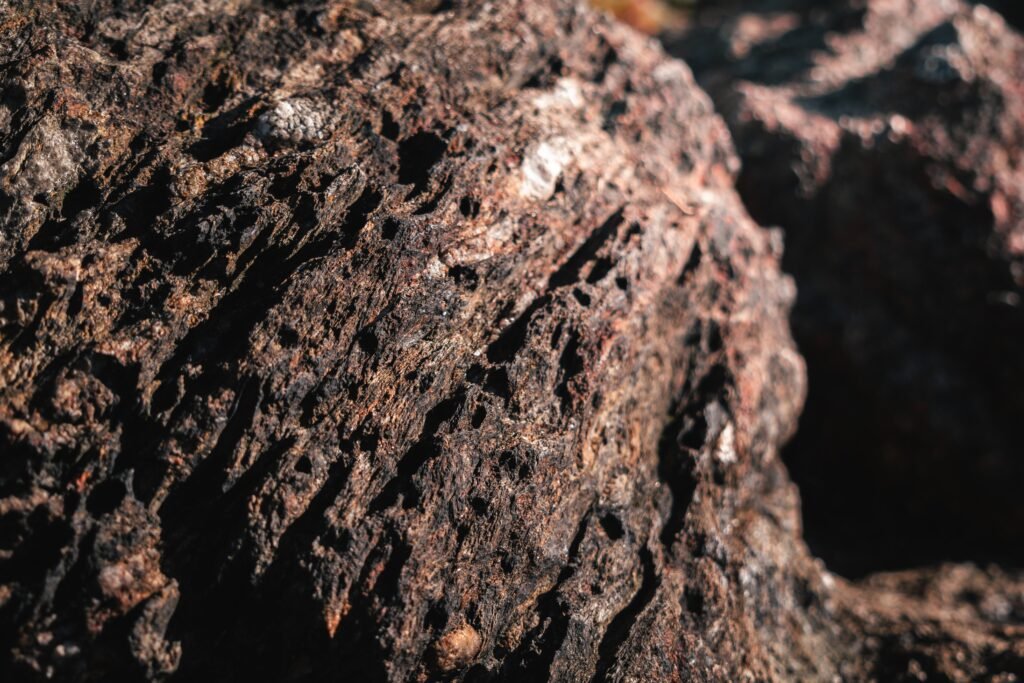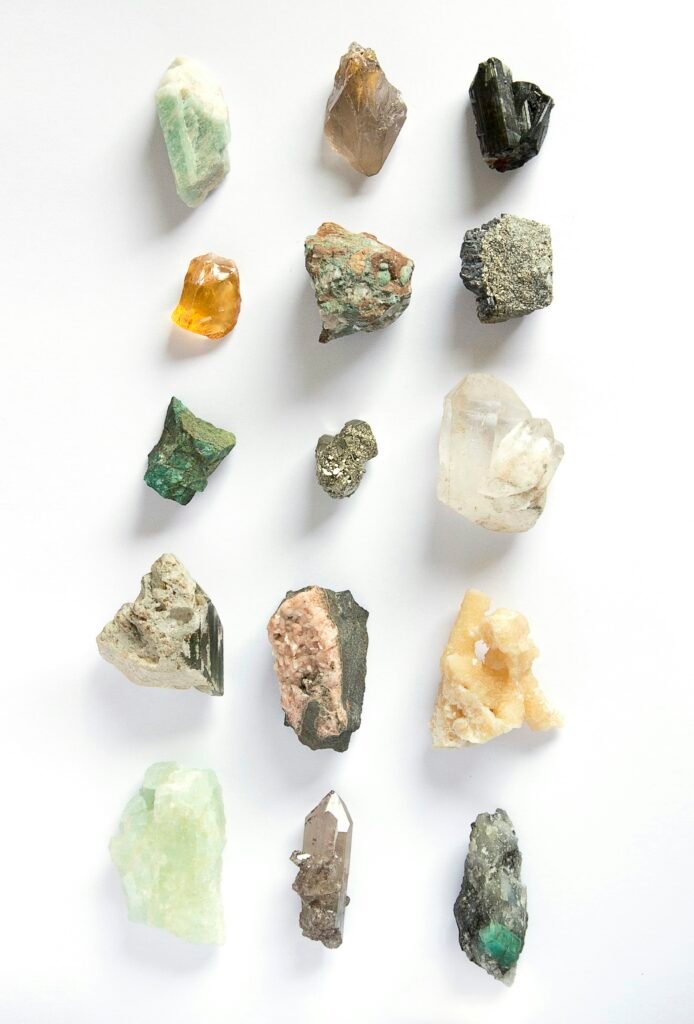Have you ever wondered if stress can affect your likelihood of developing kidney stones? Well, you may be surprised to learn that research has shown a clear link between stress levels and the formation of these painful mineral deposits. In this article, we will explore how stress can contribute to the formation of kidney stones and discuss some prevention strategies to help you keep these pesky stones at bay. So, if you’ve been feeling a bit stressed lately, read on to discover how it may be impacting your kidney health.
Causes of Kidney Stone Formation
Chemical imbalance in urine
Kidney stone formation can be caused by a chemical imbalance in urine. When there is an excess of certain chemicals in the urine, such as calcium, oxalate, or uric acid, it can lead to the formation of crystals that eventually grow into kidney stones. This imbalance can be caused by various factors, including genetics, diet, and underlying medical conditions.
Medications
Certain medications can also contribute to the formation of kidney stones. For example, diuretics, which are commonly used to treat high blood pressure, can increase urine production and lead to dehydration, making it more likely for kidney stones to form. Other medications, such as antacids containing calcium, can increase the levels of calcium in the urine, which may also contribute to stone formation.
Dehydration
Dehydration is a well-known risk factor for kidney stone formation. When you’re dehydrated, your urine becomes more concentrated, allowing for the accumulation of minerals and other substances that can form crystals. Additionally, dehydration can reduce urine volume, making it more difficult for the kidneys to flush out these crystals, increasing the risk of stone formation.
Family history
Family history can play a role in kidney stone formation. If you have a close relative who has had kidney stones, you may be more likely to develop them yourself. This suggests that there may be genetic factors at play, which can influence the way your body processes and excretes certain substances, making you more susceptible to stone formation.
High-sodium diet
A diet high in sodium can contribute to kidney stone formation. High levels of sodium can increase the amount of calcium in the urine, which can lead to the formation of calcium stones. Additionally, a high-sodium diet can increase the risk of dehydration, as sodium causes the body to retain water. This, in turn, can lead to concentrated urine and the formation of kidney stones.
Types of Kidney Stones
Calcium stones
Calcium stones are the most common type of kidney stones and are typically made up of calcium oxalate or calcium phosphate. These stones form when there is an excess of calcium or oxalate in the urine, which can combine and crystallize, leading to stone formation. Calcium stones can vary in size and may cause symptoms such as pain, blood in the urine, and frequent urination.
Uric acid stones
Uric acid stones form when there is an excessive amount of uric acid in the urine. This can occur due to factors such as a high-protein diet, certain medical conditions like gout, or genetic predisposition. Uric acid stones can be smaller in size and have a smoother texture compared to calcium stones. Symptoms may include pain in the back or side, blood in the urine, and a frequent urge to urinate.
Struvite stones
Struvite stones typically form as a result of urinary tract infections (UTIs). These stones are composed of magnesium, ammonium, and phosphate, and can grow rapidly. Struvite stones often form in the presence of bacteria that produce urease, an enzyme that increases urine pH and promotes stone formation. Symptoms of struvite stones may include pain in the lower abdomen, cloudy or foul-smelling urine, and frequent urination.
Cystine stones
Cystine stones are rare and are caused by a genetic disorder known as cystinuria. This condition affects the transport of the amino acid cystine in the kidneys, leading to its accumulation and the formation of stones. Cystine stones can be large, and recurring stones are common. Symptoms may include severe pain, blood in the urine, and recurrent urinary tract infections.

This image is property of images.unsplash.com.
Understanding Stress and Its Effects on the Body
Definition of stress
Stress is the body’s response to demanding or threatening situations. It triggers a series of physiological and psychological responses that prepare the body to react and adapt to the perceived challenge. While stress can be beneficial in certain situations, chronic or excessive stress can have a negative impact on physical and mental health.
Physiological response to stress
When faced with a stressful situation, the body releases stress hormones such as cortisol and adrenaline. These hormones trigger a “fight or flight” response, preparing the body to either confront the stressor or escape from it. This response involves increased heart rate, elevated blood pressure, and heightened alertness, among other physiological changes.
Impact of chronic stress on health
Chronic stress can have a detrimental effect on overall health. Prolonged exposure to high levels of stress hormones can lead to various health problems, including cardiovascular disease, weakened immune system, digestive issues, and mental health disorders such as anxiety and depression. Chronic stress has also been linked to an increased risk of developing certain medical conditions, including kidney stones.
Link between Stress and Kidney Stone Formation
Increased cortisol levels
One of the main ways in which stress can contribute to kidney stone formation is through increased levels of cortisol, the primary stress hormone. Chronic stress can lead to elevated cortisol levels, which can affect the body’s ability to regulate the balance of minerals in the urine. This imbalance can promote the formation of kidney stones by increasing the concentration of substances like calcium and oxalate.
Impaired urinary system
The physiological effects of stress can also impact the urinary system, potentially leading to kidney stone formation. Stress can cause muscle tension and spasms, which can affect the normal functioning of the urinary tract. These disruptions can hinder the flow of urine and increase the likelihood of mineral deposition and stone formation in the kidneys.
Changes in dietary habits
Stress can also influence dietary habits, which can indirectly contribute to kidney stone formation. When experiencing stress, some individuals may turn to unhealthy coping mechanisms, such as consuming high-sodium, high-fat, or high-sugar foods. These dietary choices can increase the risk of dehydration and the accumulation of stone-forming substances in the urine.
Dehydration due to stress
Stress can lead to dehydration, as the body’s stress response can cause increased sweating and urine production. Dehydration can concentrate urine, allowing for the formation of kidney stones. Additionally, stress-induced dehydration can reduce the flow of urine, making it harder for the kidneys to flush out crystalline substances, further increasing the risk of stone formation.

This image is property of images.unsplash.com.
Stress as a Risk Factor for Different Types of Kidney Stones
Calcium stones
Stress has been implicated as a risk factor for calcium stone formation. Increased cortisol levels, as well as changes in urinary pH and mineral balance caused by chronic stress, can promote the crystallization of calcium oxalate or calcium phosphate, leading to the formation of calcium stones.
Uric acid stones
Chronic stress has also been associated with an increased risk of uric acid stone formation. Stress-induced dehydration can lead to a more concentrated urine, increasing the likelihood of uric acid crystallization. Moreover, stress can affect the body’s uric acid metabolism, potentially leading to higher levels of uric acid in the urine.
Struvite stones
While the link between stress and struvite stone formation is not as well-established, stress-induced changes in urinary pH and the presence of bacteria associated with stress-related urinary tract infections can contribute to the development of struvite stones.
Cystine stones
Stress is not a direct risk factor for cystine stone formation. However, stress can impact overall fluid balance and urinary flow, potentially affecting the clearance of cystine from the kidneys and increasing the risk of stone formation in individuals with cystinuria.
Preventing Kidney Stone Formation
Stress management techniques
To reduce the risk of kidney stone formation, it is crucial to implement effective stress management techniques. This may include practices such as deep breathing exercises, meditation, mindfulness, and engaging in activities that promote relaxation and emotional well-being. Finding healthy coping mechanisms to deal with stress can help mitigate its impact on the body.
Maintaining a balanced diet
Adopting a balanced diet is essential for preventing kidney stone formation. A diet rich in fruits, vegetables, whole grains, and lean proteins can provide the necessary nutrients while minimizing the intake of stone-forming substances. It is important to limit sodium, oxalate, and purine-rich foods, as well as maintain adequate calcium intake.
Adequate hydration
Staying properly hydrated is crucial for preventing kidney stone formation. Aim to drink an adequate amount of water throughout the day to maintain optimal urine volume and dilution. Monitoring urine color is a helpful indicator of hydration status – light or pale yellow urine suggests proper hydration, while dark yellow urine may indicate dehydration.
Regular exercise
Engaging in regular physical activity is beneficial for both kidney health and stress management. Exercise can promote healthy blood flow to the kidneys, improve overall cardiovascular health, and help reduce stress levels. Find activities you enjoy, such as walking, swimming, or cycling, and aim for moderate intensity exercise for at least 150 minutes per week.

This image is property of images.unsplash.com.
Stress Management Techniques
Deep breathing exercises
Deep breathing exercises can help to activate the body’s relaxation response and reduce stress levels. Taking slow, deep breaths in through the nose and exhaling slowly through the mouth can help to calm the mind and promote a sense of relaxation. This practice can be done anytime and anywhere, making it a convenient stress management tool.
Meditation and mindfulness
Meditation and mindfulness practices involve focusing attention on the present moment, allowing thoughts and emotions to come and go without judgment. These practices have been shown to reduce stress, promote a sense of well-being, and improve overall mental health. Consider incorporating meditation or mindfulness techniques into your daily routine to manage stress effectively.
Exercise and physical activity
Regular exercise is an excellent stress management tool. Engaging in physical activity helps to release endorphins, the body’s natural feel-good chemicals, and reduce the levels of stress hormones. Find activities that you enjoy, such as walking, jogging, dancing, or yoga, and make them a regular part of your routine to help combat stress and support overall well-being.
Relaxation techniques
In addition to deep breathing exercises and meditation, other relaxation techniques can be beneficial for managing stress. This may include progressive muscle relaxation, where you consciously tense and relax different muscle groups in the body, or listening to calming music or nature sounds. Experiment with different techniques to find what works best for you in promoting relaxation and reducing stress.
Dietary Modifications to Prevent Kidney Stones
Reducing sodium intake
Limiting sodium intake is essential for kidney stone prevention. High levels of sodium can increase the amount of calcium excreted in the urine, contributing to calcium stone formation. Avoiding processed and packaged foods, which are often high in sodium, and opting for fresh, whole foods can help to reduce sodium intake and promote kidney health.
Increasing calcium intake
Contrary to popular belief, increasing calcium intake can actually help prevent certain types of kidney stones. Calcium from food sources can bind to oxalate in the intestines, reducing the amount of oxalate available for absorption and subsequent excretion in the urine. Including calcium-rich foods, such as low-fat dairy products, leafy greens, and almonds, in your diet can be beneficial for stone prevention.
Balancing oxalate-rich foods
Oxalate-rich foods, such as spinach, rhubarb, beets, and chocolate, can contribute to the formation of calcium oxalate stones. However, eliminating these foods completely is not necessary, as they also provide important nutrients. Instead, it is recommended to balance oxalate-rich foods with calcium-rich foods and maintain adequate hydration to help mitigate the risk of stone formation.
Limiting purine-rich foods
Purines are substances found in certain foods that can be metabolized into uric acid. In individuals prone to uric acid stone formation, it is important to limit the intake of purine-rich foods, such as organ meats, shellfish, and certain types of fish. Consult with a healthcare professional or registered dietitian to determine the appropriate dietary approach based on your specific needs.
The Role of Hydration in Kidney Stone Prevention
Importance of adequate fluid intake
Adequate fluid intake is crucial for kidney stone prevention. Drinking enough fluids helps to maintain optimal urine production, dilution, and flow, which can prevent the accumulation of stone-forming substances and promote their elimination from the body. Hydration is particularly important in warmer climates, during physical activity, and when experiencing stress.
Recommended daily water consumption
The recommended daily water consumption for most individuals is around 8 cups, or 64 fluid ounces. However, this recommendation may vary depending on factors such as age, sex, activity level, climate, and overall health. It is important to listen to your body’s thirst signals and drink water regularly throughout the day to ensure proper hydration.
Other beneficial fluids
While water is the best choice for hydration, other fluids can also contribute to your daily fluid intake. Herbal teas, decaffeinated beverages, and low-sugar fruit juices can provide hydration while adding variety to your fluid intake. However, it is important to be mindful of the sugar content in certain beverages and choose options that align with your overall health goals.
Monitoring urine color and volume
Monitoring urine color and volume is a simple way to assess hydration status. Pale or light yellow urine indicates adequate hydration, while dark yellow urine suggests dehydration. Aim for a steady stream of urine and sufficient volume throughout the day. If your urine is consistently dark or your urine output is low, it may be a sign that you need to drink more fluids.
Importance of Regular Exercise
Benefits of exercise for kidney health
Regular exercise offers numerous benefits for kidney health. Physical activity can help to improve blood flow to the kidneys, enhance cardiovascular health, and promote overall kidney function. It can also aid in weight management, prevent obesity-related conditions, and reduce the risk of certain chronic diseases, including kidney stones.
Recommended exercise guidelines
The American Heart Association recommends at least 150 minutes of moderate-intensity aerobic exercise or 75 minutes of vigorous-intensity aerobic exercise per week for adults. Additionally, incorporating strength training exercises at least twice a week can help to improve muscle strength and overall fitness. Consult with a healthcare professional before starting any new exercise program.
Impact of physical activity on stress levels
Exercise has been proven to be an effective stress management tool. Physical activity stimulates the production of endorphins, which are natural mood boosters, and helps to lower cortisol levels, reducing stress and anxiety. Engaging in regular exercise can improve mental well-being, enhance sleep quality, and provide a healthy outlet for coping with stress.
Exercise as a stress management tool
Regular exercise can be used as a proactive method to manage and reduce stress levels. Whether it’s going for a walk, practicing yoga, or participating in a team sport, engaging in physical activity can help divert attention from stressors, improve mood, and provide a sense of accomplishment. Find activities that you enjoy and make them a part of your daily routine to harness the stress-reducing benefits of exercise.

